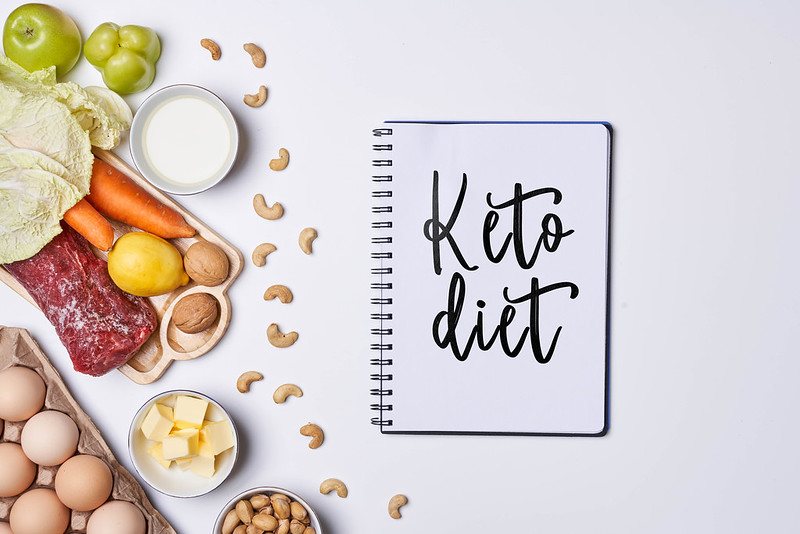Have you been thinking about trying the keto diet? This popular weight loss program is incredibly effective and a great way to get healthy and lose weight. But, as with any diet, it’s important to understand what you’re getting into before you start. This guide will give you all the information you need to get started on the keto diet, including what foods you can eat and avoid. Also, we will discuss how a protein powder for a keto diet can sustain your protein intake.
What Exactly is a Keto Diet?
A keto diet is a low-carbohydrate, high-fat diet. It’s similar to other low-carb diets like the Atkins diet and the South Beach diet. The goal of the keto diet is to force your body into a state called ketosis. In ketosis, your body burns fat for energy instead of carbs. It helps you lose weight and keep it off.
What Foods Are Allowed on the Keto Diet?
When you’re following a keto diet, your food choices will revolve around high-fat, low-carb foods. Here are some of them:
- Nuts and Seeds: Nuts and seeds are high in healthy fats and make a great snack on the keto diet. Almonds, walnuts, seeds, and pumpkin seeds are all good choices.
- High-Fat Dairy: You can enjoy high-fat dairy like butter, cream, full-fat yogurt, and cheese on the keto diet. Just be sure to choose products made from grass-fed cows when possible.
- Meat and Poultry: A keto diet includes plenty of meat and poultry. You can have steak, chicken, pork, lamb, etc. and be sure to avoid processed meats.
- Fish and Seafood: All types of fish and seafood are allowed on the keto diet. It includes salmon, tuna, shrimp, crab, and more.
- Non-Starchy Vegetables: The keto diet allows non-starchy vegetables. These include broccoli, Brussels sprouts, zucchini, and bell peppers.
- Avocados: Avocados are an excellent source of healthy fats and fibre. You can add them to salads or eat them as a satisfying snack.
- Berries: While other fruits are off-limits on the keto diet due to their high sugar content, berries are a great exception. Blackberries, raspberries, and blueberries are perfect for satisfying your sweet tooth while staying within your carb limit.
- Oils: Healthy oils like olive oil and coconut oil are nice choices on the keto diet. You can use them for cooking or add them to salads.
- High-Cocoa Chocolate: Chocolate is typically off-limits on most diets, but you can enjoy it in moderation on the keto diet. Choose dark chocolate with at least 70% cocoa content for the healthiest option.
What Foods Should You Avoid on the Keto Diet?
While there are plenty of delicious and nutritious foods you can eat on the keto diet, there are also some foods to avoid. Here are a few of them:
- Chips and Crackers: Chips and crackers are typically high in carbs and made from refined grains, making them a no-go on the keto diet.
- Starchy Vegetables: Starchy vegetables like potatoes, sweet potatoes, and corn should be avoided on the keto diet.
- High-Sugar Fruits: Many fruits are high in sugar and carbs, making them a no-no on the keto diet. Stay away from fruits like bananas, grapes, and oranges.
- Grains: All types of grains should be avoided on the keto diet, including wheat, oats, rice, and quinoa.
- Any sugar: You’ll want to avoid all forms of sugar on the keto diet, including honey, agave nectar, and maple syrup.
- Baked Goods: Cakes, cookies, and other baked goods are typically off-limits on the keto diet.
How Much Protein Do You Need on the Keto Diet?
The amount of protein you need on the keto diet will depend on your individual needs. But, most people need between 0.6 and 1 gram of protein per pound of body weight (1-2).
For example, a person who weighs 150 pounds would need between 90 and 150 grams of protein per day.
If you’re active, you may need more protein. And if you have a lot of muscle mass, you may need even more.
Protein powder can be a helpful addition to your diet if you struggle to get enough protein. But not all protein powders are the same. Make sure to choose a protein powder low in carbs and made from high-quality ingredients.
Tips for Following a Keto Diet Successfully
If you’re new to the keto diet, it can be helpful to have some tips and tricks to ensure success. Here are a few tips:
- Make sure you’re getting enough protein. Protein is essential on the keto diet, and protein powder can be a great way to ensure you’re getting enough.
- Be careful with your carbs. While you do need to limit your carbs on the keto diet, you don’t need to eliminate them.
- Fat is your friend. On the keto diet, fat is an essential part of your diet and can help keep you full and satisfied.
- Drink plenty of water. Staying hydrated is important on any diet, but it’s especially important on the keto diet.
- Don’t be afraid to experiment. The keto diet can be flexible, so don’t be afraid to try new things and see what works for you.
Conclusion
The keto diet can be a great way to lose weight and improve your health. Following the diet correctly is important, and ensuring you’re getting enough fat. Also, an adequate protein intake is essential, as well as staying hydrated. With these tips in mind, you can successfully follow the keto diet and reap all the benefits.
Have you tried the keto diet? What tips would you add? Let us know in the comments below!

